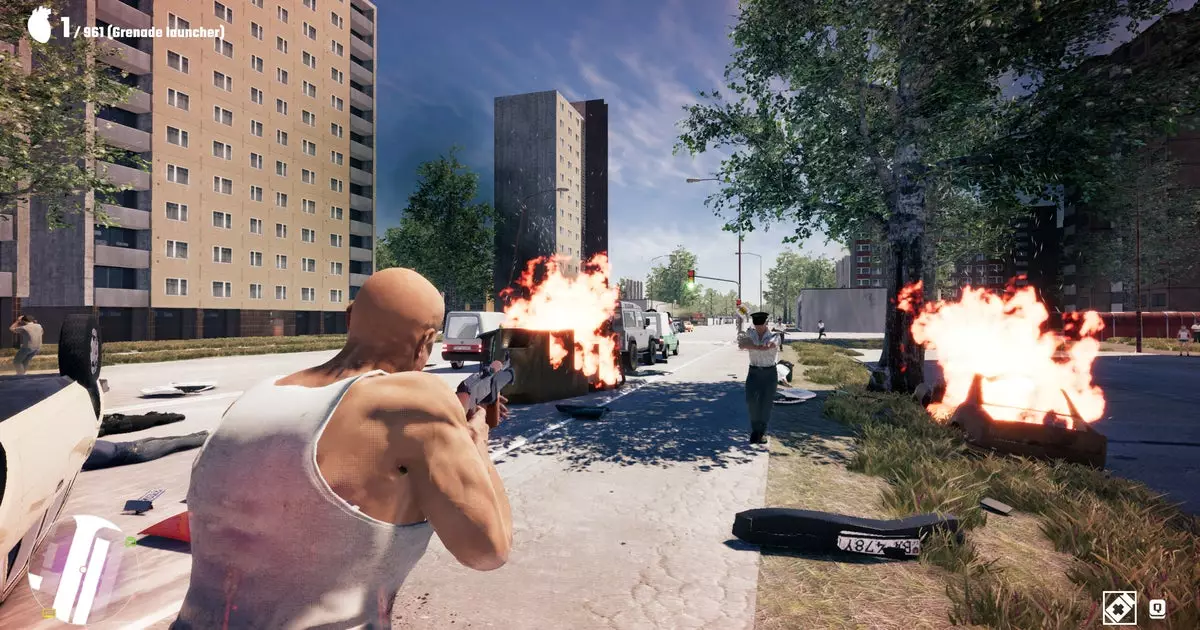As an aspiring gamer and frequent consumer of the open-world genre, I find myself compelled to scrutinize the early access build of the game Vivat Slovakia. This title aims to carve its niche within an expansive field that has long been dominated by the likes of Rockstar Games, particularly the Grand Theft Auto (GTA) series. However, after considerable reflection on my experience, I’ve come to the realization that Vivat Slovakia may not live up to the high bar set by its inspirations.
A Gallic Gesture to a Classic Formula
Vivat Slovakia attempts to channel the essence of the Grand Theft Auto series while reimagining it within the rich historical and cultural context of 1990s Slovakia. Indeed, it’s nearly a direct homage to Rockstar’s crown jewel, touching on thematically resonant subjects such as crime and corruption, with a story that aims to weave complex narratives reflective of the period. Yet, the decision to emulate the stylistic elements of a franchise known for its immersive gameplay and storytelling raises the stakes considerably. The visual aesthetics, including font choices, evoke an immediate sense of nostalgia, but one might question whether mere imitation can suffice.
Playing as Trotter, an enigmatic and often unlikable protagonist, introduces players to a world rife with ethical ambiguity. Described as a “taxi driver slash undercover cop,” Trotter embodies the moral complexity that has become synonymous with open-world narratives. However, rather than feeling fully fleshed out, Trotter’s characterization risks leaving players disconnected from his plight. The ambitions of Vivat Slovakia reflect a desire to delve deeply into a narrative wrestling with the dynamics of loyalty, power, and corruption. Yet, there’s a lingering suspicion that it risks crashing under the weight of its aspirations.
At the heart of Vivat Slovakia lies an inventive approach to game mechanics, yet not all of them strike gold. The introduction of taxi missions as a means of familiarizing players with navigation and driving mechanics is reminiscent of strategies seen in the early GTA games. Players encounter an eclectic mix of passengers, who react uniquely based on their quirks—a notable design feature that fosters a sense of unpredictability and immersion.
The game isn’t shy about addressing themes that might raise eyebrows in more sensitive gaming circles. A tutorial highlighting the acquisition of a sniper rifle through a horrific scenario at a border crossing feels like a bold decision, albeit with questionable taste. While some might applaud the audacity, there’s an undeniable risk of alienating players who are seeking a more conventional gaming experience.
Moreover, the inclusion of various radio stations adds a layer of craftsmanship, allowing the ambient noise of the game to evolve naturally—an effective way to contextualize the era. However, one might wonder if the overall execution of these mechanics distracts from the fundamental gameplay experience instead of enhancing it.
At its best, Vivat Slovakia aims to deliver a riveting tale inspired by the turbulence of real historical events. Yet, while the intentions are laudable, the execution may fall flat. A narrative rooted deeply in the political and criminal entanglements of 1990s Slovakia presents immense potential, but struggles to rise above its foundational challenges. The relationships within the story feel overly formulaic at times, depriving players of the richly developed arcs that characterize Rockstar’s storytelling prowess.
Although the incorporation of professional voice acting lends an air of professionalism to the undertaking, it feels insufficient to mask the underlying narrative discrepancies. Much like the gameplay, the storytelling feels like a patchwork, where every piece of the narrative jolts rather than flows harmoniously.
Vivat Slovakia is an ambitious endeavor that seeks to evoke the spirit of a beloved gaming franchise while paving its own path through 1990s Slovakia’s intricate sociopolitical landscape. Although it showcases some admirable features, including a bold narrative ambition and varied mechanics, it struggles to fully realize its overwhelming vision. It may not dethrone Rockstar’s dominance but serves as an intriguing entry into a genre populated by monoliths. For those willing to explore its offerings, Vivat Slovakia stands as a lesson in the complexities of game design—a blend of promise mixed with the risks of anticipation. As such, my journey through this early access experience has left me not disappointed, but contemplative about the road ahead for both the game and the developers behind it.

